Space
Sign up for our newsletter
We summarize the week's scientific breakthroughs every Thursday.
-
 Space
Space50 years ago, the United States and Soviet Union joined forces for science
In 1972, U.S. and Soviet leaders agreed to work together on science. Now, Russia’s war in Ukraine is straining that decades-long partnership.
-
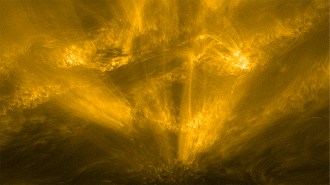 Astronomy
AstronomyThe Solar Orbiter spacecraft spotted a ‘hedgehog’ on the sun
In its closest flyby yet of the sun, the Solar Orbiter came within 48 million kilometers of our star, revealing new details.
By Liz Kruesi -
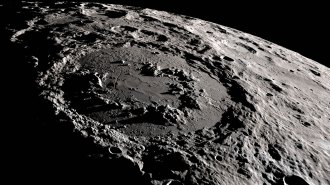 Planetary Science
Planetary ScienceIce at the moon’s poles might have come from ancient volcanoes
Volcanic eruptions billions of years ago probably released enough water vapor to have deposited ice at the lunar poles, a study finds.
By Anna Gibbs -
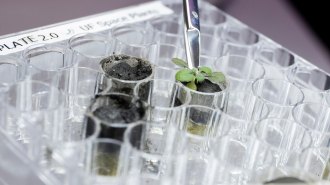 Plants
PlantsThese are the first plants grown in moon dirt
The first attempt to grow plants in Apollo samples from the moon shows the promise and potential struggles of farming in lunar soil.
-
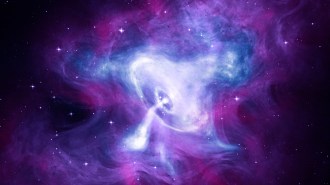 Astronomy
AstronomyPulsars may power cosmic rays with the highest-known energies in the universe
Earth is pelted by energetic particles from space. The source might be the magnetic remains of massive stars, a new study suggests.
By Liz Kruesi -
 Cosmology
CosmologyA century ago, Alexander Friedmann envisioned the universe’s expansion
Alexander Friedmann saw that Einstein’s equations predicted multiple cosmic scenarios, including a Big Bang.
-
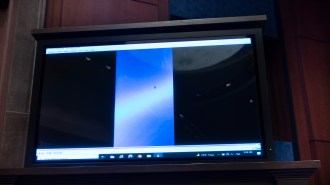 Science & Society
Science & SocietyWhy some scientists want serious research into UFOs
Science grapples with unknown phenomena all the time. Investigating UAP and whether they're related to aliens shouldn't be different, researchers say.
By Liz Kruesi -
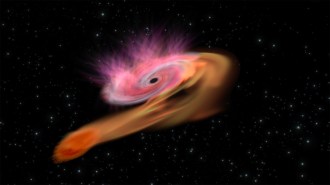 Particle Physics
Particle PhysicsHigh-energy neutrinos may come from black holes ripping apart stars
Where extremely energetic neutrinos originate from is a mystery. A new study supports the idea that “tidal disruption events” are one source.
-
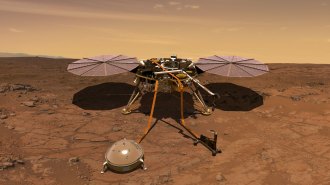 Planetary Science
Planetary ScienceNASA’s InSight lander has recorded the largest Marsquake yet
The magnitude 5 temblor, detected May 4, will help scientists learn more about the Red Planet’s interior.
-
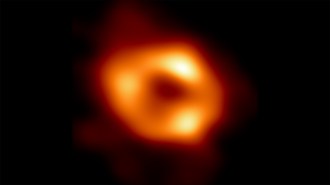 Astronomy
AstronomyWe finally have an image of the black hole at the heart of the Milky Way
Observations from the Event Horizon Telescope reveal the turbulent region around our home galaxy’s black hole, Sagittarius A*, in new detail.
By Liz Kruesi and Emily Conover -
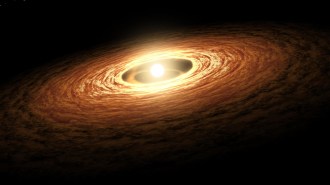 Astronomy
AstronomyThe sun’s searing radiation led to the shuffling of the solar system’s planets
As the young sun’s radiation evaporated gas from its surrounding disk, it triggered a jumbling of the giant planets’ orbits, simulations suggest.
By Liz Kruesi -
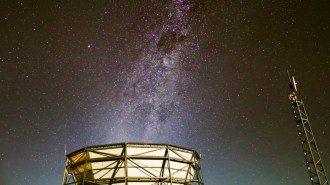 Space
Space50 years ago, scientists had hints of a planet beyond Pluto
In 1972, calculations from Halley’s comet offered evidence of another planet. Today’s astronomers are still searching for a Planet Nine.